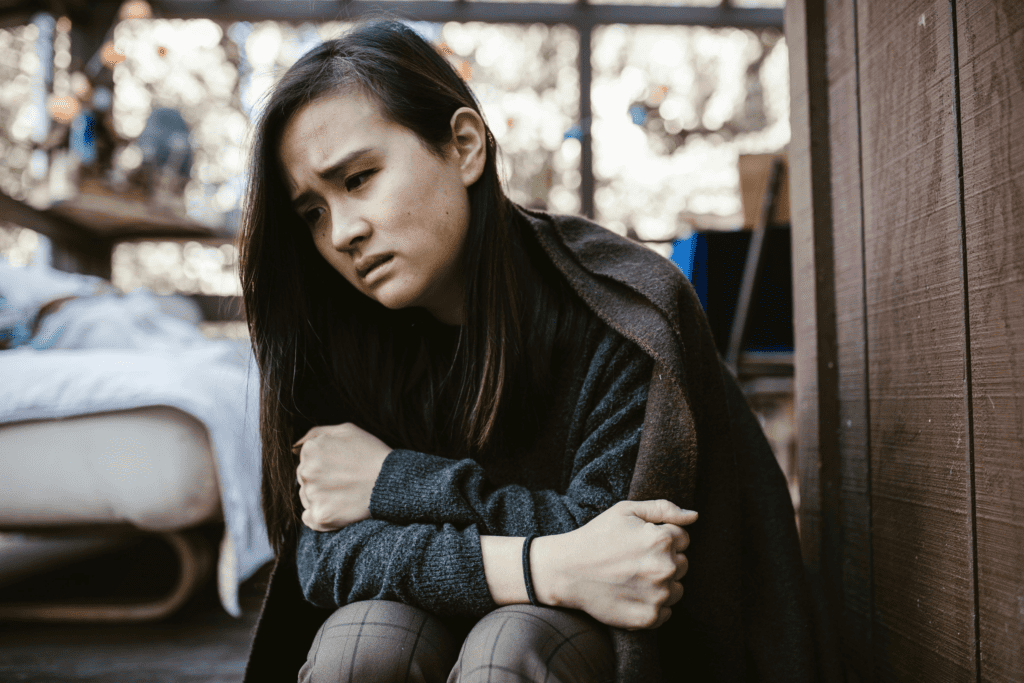Last updated on December 17th, 2024 at 01:08 pm
- 1. Understanding Sleeping Pills and Their Effects
- 1.1 Short-Term Effects
- 1.2 Long-Term Consequences
- 2. Recognizing Signs of Sleeping Pill Abuse
- 2.1 Behavioral Changes
- 2.2 Physical Symptoms
- 2.3 Psychological Signs
- 3. The Dangers of Sleeping Pill Abuse
- 3.1 Short-Term Risks
- 3.2 Long-Term Health Consequences
- 3.3 Parasomnias and Complex Sleep Behaviors
- 4. Tolerance, Dependence, and Addiction
- 4.1 Tolerance
- 4.2 Physical Dependence
- 4.3 Psychological Addiction
- 5. Withdrawal and Rebound Insomnia
- 5.1 Withdrawal Symptoms
- 5.2 Rebound Insomnia
- 6. Treatment Options for Sleeping Pill Addiction
- 6.1 Medical Detoxification
- 6.2 Cognitive Behavioral Therapy (CBT)
- 6.3 Sleep Hygiene Education
- 6.4 Support Groups
- 7. Prevention and Safe Use of Sleeping Pills
- Sleeping Pill-Induced Complex Sleep Behaviors
- Potential Risks of Prescription Sleeping Pills
- Short-Term Use vs. Long-Term Effects of Sleep Medications
- Sleeping Pill-Induced Respiratory Depression
- Sleeping Pill-Induced Mental and Cognitive Impairment
- Sleeping Pill-Induced Daytime Sleepiness and Next-Day Drowsiness
- Sleeping Pill Withdrawal Symptoms and Rebound Insomnia
- Non-Pharmacological Treatment of Insomnia
- Sleeping Pill-Induced Parasomnias
- Sleeping Pill-Induced Gastrointestinal and Physical Side Effects
- Dangerous Interaction of Sleeping Pills with Alcohol
- Sleeping Pill-Induced Allergic Reactions
- Supportive Care for Sleeping Pill Dependency
- Long-Term Management of Sleep Disorders
- Counter Sleep Aids and Their Role
- Active Ingredients and Potential Risks
- Sleeping Pill-Induced Muscle Tension and Weakness
- Sleeping Pill-Induced Cardiovascular Issues
- Sleeping Pill-Induced Unusual Dreams and Hallucinations
- Sleeping Pill-Induced Gastrointestinal Complications
- Sleeping Pill-Induced Pulmonary Disease Risks
- Sleeping Pill-Induced Risk of Falls and Injuries
- Sleeping Pill-Induced Risk of Severe Addiction
- Sleeping Pill-Induced Risk of Fatal Overdose
- Sleeping Pill-Induced Risk of Mental Disorders
- Sleeping Pill-Induced Increased Risk of Cognitive Decline
- The Role of the American Academy of Sleep Medicine
- Sleeping Pill-Induced Increased Risk of Dependency
- Frequently Asked Questions about Sleeping Pills
- What Are the Symptoms of Sleeping Pill Addiction?
- What Are the Common Side Effects of Prescription Sleeping Pills?
- Can I Use Over-the-Counter Sleep Aids for Chronic Insomnia?
- How Do Prescription Sleep Medications Affect Mental Health?
- What Are Complex Sleep Behaviors, and Are They Dangerous?
- Are There Safer Alternatives to Sleep Aids for Treating Insomnia?
- What Should I Do If I Suspect Sleeping Pill Overdose?
- Can Sleeping Pills Affect My Physical Health?
- Is It Safe to Combine Sleeping Pills with Alcohol?
- What Are the Risks of Long-Term Use of Sleeping Pills?
- Can Sleeping Pills Impact My Daily Functioning?
- Are There Specific Health Conditions that Make Sleeping Pills Unsafe?
Sleeping pills have become increasingly prevalent in modern society as a quick fix for insomnia and sleep disorders. However, the casual use of these powerful sedatives masks significant risks that many consumers fail to recognize. While sleeping pills can provide short-term relief, prolonged or improper use can lead to dependency, adverse health effects, and even addiction.
This comprehensive guide examines the symptoms, warning signs, and dangers associated with sleeping pill abuse and addiction. By understanding the risks and recognizing problematic usage patterns, individuals can make more informed decisions about sleep aids and seek help when needed.
Discover the sleeping pills symptoms and warning signs of it’s dependency, from side effects to serious health risks. Protect your well-being with essential insights.
1. Understanding Sleeping Pills and Their Effects
Sleeping pills, also known as sedative-hypnotics, are prescription medications designed to help individuals fall asleep or stay asleep. Common types include:
- Benzodiazepines (e.g. temazepam, triazolam)
- Non-benzodiazepine hypnotics (e.g. zolpidem, zaleplon)
- Barbiturates
- Melatonin receptor agonists
These medications work by enhancing the effects of GABA, a neurotransmitter that reduces brain activity and promotes relaxation. While effective in the short-term, regular use can lead to tolerance, requiring higher doses to achieve the same effects.
1.1 Short-Term Effects
The immediate effects of sleeping pills typically include:
- Drowsiness and sedation
- Reduced anxiety
- Muscle relaxation
- Slowed breathing
- Lowered blood pressure
However, these effects can persist into the following day, leading to daytime drowsiness, impaired coordination, and cognitive difficulties.
1.2 Long-Term Consequences
Prolonged use of sleeping pills can result in:
- Physical dependence
- Cognitive impairment
- Increased risk of falls and accidents
- Potential for abuse and addiction
- Withdrawal symptoms upon cessation


2. Recognizing Signs of Sleeping Pill Abuse
Identifying sleeping pill abuse early is crucial for preventing addiction and long-term health consequences. Common signs include:
2.1 Behavioral Changes
- Taking higher doses than prescribed
- Using sleeping pills during the day
- Doctor shopping to obtain multiple prescriptions
- Lying about pill usage or hiding pills
- Neglecting responsibilities due to drug use
2.2 Physical Symptoms
- Frequent drowsiness or sedation
- Slurred speech
- Impaired coordination and balance
- Memory problems
- Slowed reflexes
2.3 Psychological Signs
- Increased anxiety or depression
- Mood swings
- Irritability when unable to take pills
- Obsession with obtaining and using sleeping pills
3. The Dangers of Sleeping Pill Abuse
While sleeping pills can be beneficial when used as directed, abuse can lead to severe health risks and life-threatening situations.
3.1 Short-Term Risks
- Impaired judgment and decision-making
- Increased risk of accidents and injuries
- Paradoxical reactions (increased insomnia, anxiety, or agitation)
- Allergic reactions
- Overdose, especially when combined with other substances
3.2 Long-Term Health Consequences
- Chronic sleep disturbances
- Cognitive decline and memory impairment
- Increased risk of dementia in older adults
- Liver and kidney damage
- Cardiovascular problems
- Heightened risk of certain cancers


3.3 Parasomnias and Complex Sleep Behaviors
Some individuals taking sleeping pills may experience parasomnias, which are abnormal behaviors during sleep. These can include:
- Sleepwalking
- Sleep-eating
- Sleep-driving
- Engaging in other potentially dangerous activities while asleep
These behaviors can lead to serious injuries, legal troubles, and other unforeseen consequences.
4. Tolerance, Dependence, and Addiction
Regular use of sleeping pills can lead to a progression from tolerance to dependence and potentially addiction.
4.1 Tolerance
Tolerance occurs when the body becomes accustomed to a drug, requiring higher doses to achieve the same effects. This can develop rapidly with sleeping pills, often within a few weeks of regular use.
4.2 Physical Dependence
As tolerance builds, physical dependence may develop. This means the body has adapted to the presence of the drug and experiences withdrawal symptoms when use is stopped or reduced.
4.3 Psychological Addiction
Addiction involves compulsive drug-seeking behavior despite negative consequences. Signs of sleeping pill addiction include:
- Inability to sleep without the medication
- Cravings for the drug
- Continued use despite adverse effects on health, relationships, or work
- Failed attempts to quit or cut back
5. Withdrawal and Rebound Insomnia
Stopping or reducing sleeping pill use after developing dependence can lead to withdrawal symptoms and rebound insomnia.


5.1 Withdrawal Symptoms
Common withdrawal symptoms include:
- Anxiety and restlessness
- Tremors
- Sweating
- Nausea and vomiting
- Seizures (in severe cases)
5.2 Rebound Insomnia
Rebound insomnia is a temporary worsening of sleep problems that occurs when stopping sleeping pill use. This can be particularly challenging and may lead to relapse if not properly managed.
6. Treatment Options for Sleeping Pill Addiction
Overcoming sleeping pill addiction often requires professional help and a comprehensive treatment approach.
6.1 Medical Detoxification
Supervised detoxification can help manage withdrawal symptoms and reduce the risk of complications. This process typically involves gradually tapering the dosage under medical supervision.
6.2 Cognitive Behavioral Therapy (CBT)
CBT can help individuals identify and change thoughts and behaviors related to sleeping pill use. It also teaches coping strategies for managing insomnia without medication.


6.3 Sleep Hygiene Education
Learning and implementing good sleep habits can significantly improve sleep quality without relying on medication. This includes maintaining a consistent sleep schedule, creating a relaxing bedtime routine, and optimizing the sleep environment.
6.4 Support Groups
Peer support groups can provide encouragement, accountability, and shared experiences to aid in recovery.
7. Prevention and Safe Use of Sleeping Pills
To minimize the risks associated with sleeping pills, consider the following guidelines:
- Use sleeping pills only as prescribed and for short periods
- Explore non-pharmacological treatments for insomnia first
- Inform healthcare providers of all medications and substances used
- Never mix sleeping pills with alcohol or other sedatives
- Be aware of potential side effects and report any concerns to a healthcare provider
Sleeping Pill-Induced Complex Sleep Behaviors
Sleeping pill-induced complex sleep behaviors are a significant concern for individuals using prescription sleep medications. These behaviors include activities such as sleep-driving, sleep-eating, and even sleepwalking.
These actions are performed without conscious awareness. They pose severe risks to personal safety and can result in legal consequences.
Complex sleep behaviors are more commonly reported in individuals using sleeping pills over a prolonged period. Such actions may lead to unintended injuries or accidents.
Potential Risks of Prescription Sleeping Pills
The potential risks of using prescription sleeping pills extend beyond their intended sedative effects. The risk of dependence, dangerous behavior, and physical health issues like depressed breathing or difficulty breathing are significant concerns associated with these medications.
Long-term use of sleeping pills is linked to increased risk of complex sleep behaviors. Other dangerous side effects include chest pain and cognitive impairment.
People age 65 and older are particularly vulnerable to these risks. The risk of falls and hip fractures tends to rise with prolonged sleeping pill use.


Short-Term Use vs. Long-Term Effects of Sleep Medications
Short-term use of sleeping pills can help manage acute sleep issues. However, the effects of sleep medication become more problematic with extended use.
Prolonged use can lead to sleeping pill dependency signs. This includes needing higher doses to achieve the desired hours of sleep.
Tolerance development can also lead to sleeping pill misuse indicators. This further exacerbates the risk of sleeping pill overdose.
The Centers for Disease Control and Prevention highlights the importance of limiting prescription sleeping pills to short-term insomnia relief. Long-term use should be avoided.
Sleeping Pill-Induced Respiratory Depression
Sleeping pill-induced respiratory depression is a potentially life-threatening side effect of sedative-hypnotics. Medications such as benzodiazepines and non-benzodiazepine hypnotics can cause slowed or depressed breathing.
This risk is particularly high when combined with other central nervous system depressants, like alcohol before bed. The risk of respiratory depression is higher in individuals with underlying health conditions.
People with conditions such as pulmonary disease or sleep apnea have a greater risk of compromised respiratory function. Individuals with these medical conditions should seek guidance from a healthcare professional before using prescription sleep aids.
Sleeping Pill-Induced Mental and Cognitive Impairment
Sleeping pill-induced memory loss and cognitive impairment are frequent concerns for those using sleeping aids. These risks are especially significant during long-term use.
These medications can lead to adverse side effects such as sleeping pill-induced impaired coordination and focus. This can impact daily activities and quality of life.
Healthcare professionals may recommend tapering off these medications to reduce cognitive risks. Behavioural therapies, such as Cognitive Behavioral Therapy (CBT), are often advised as alternative treatment options for addressing chronic insomnia.


Sleeping Pill-Induced Daytime Sleepiness and Next-Day Drowsiness
Daytime sleepiness and next-day drowsiness are common side effects experienced by users of sleeping pills. These symptoms can affect work, social relationships, and daily responsibilities.
Sleeping pill-induced daytime sleepiness can lead to impaired school performance or impaired work performance. Next-day drowsiness may also contribute to impaired driving ability, increasing the risk of accidents.
Medical professionals often advise using the lowest effective dose to minimize these effects. Strict adherence to dosage guidelines provided in medication guides is crucial.
Sleeping Pill Withdrawal Symptoms and Rebound Insomnia
Abrupt discontinuation of sleeping pills can lead to severe withdrawal symptoms. Symptoms may include anxiety, nausea, and sleeping pill-induced uncontrollable shaking.
Sleeping pill withdrawal symptoms often deter individuals from stopping medication. This contributes to prolonged use and dependency.
Rebound insomnia is characterized by a temporary worsening of sleep onset and sleep issues. Medical care, particularly supervised detoxification, can be critical for managing these withdrawal symptoms.
Supervised detoxification can also help prevent sleeping pill-induced increased risk of rebound insomnia. Seeking medical care is essential to avoid complications.


Non-Pharmacological Treatment of Insomnia
Non-pharmacological approaches are effective in the treatment of insomnia. They can also help avoid the dangers associated with sleeping pills.
Techniques like sleep restriction, stimulus control, and progressive muscle relaxation can help regulate circadian rhythm. These methods promote better sleep health.
Behavioral therapies like CBT target underlying issues contributing to insomnia. They also reduce dependency on medications for insomnia.
Relaxation techniques, such as breathing exercises, may provide relief for individuals experiencing mild sleep disorders. These alternatives avoid the risks of counter sleep aids or prescription sleep medications.
Sleeping Pill-Induced Parasomnias
Sleeping pill-induced parasomnias, such as sleep-eating, sleep-driving, and sleep-talking, are complex sleep behaviors. They are often triggered by sedative effects.
These parasomnias can be dangerous and result in injuries or legal problems. Individuals taking common prescription sleeping pills should be aware of these risks.
People with a history of parasomnias or other sleep disorders should be especially cautious. Medical professionals recommend closely monitoring any unusual behavior during sleep.
Immediate medical care should be sought if these symptoms occur. Preventative measures may help mitigate these risks.
Sleeping Pill-Induced Gastrointestinal and Physical Side Effects
Sleeping pill-induced stomach pain, abdominal pain, nausea, and constipation are common gastrointestinal side effects. These symptoms can lead to significant discomfort.
Adjustments in dosage or changing medications may be required to alleviate these symptoms. Healthcare providers may suggest alternative therapies for these issues.
Sleeping pill-induced dizziness, loss of coordination, and uncoordinated movements also increase the risk of falls and injuries. Switching to alternative therapies or counter sleep medications may alleviate these adverse effects.


Dangerous Interaction of Sleeping Pills with Alcohol
The interaction between sleeping pills and alcohol poses dangerous side effects. These include heightened risk of severe drowsiness, impaired coordination, and increased risk of overdose.
Alcohol addiction can exacerbate sleeping pill misuse indicators. This can lead to dangerous behaviors such as sleepwalking or sleep-driving.
Avoiding alcohol before bed is essential when using any form of sleeping aid. The combination of alcohol and sleep aids can result in fatal overdose or other life-threatening consequences.
The American Academy of Sleep Medicine emphasizes the importance of discussing current medication with a health professional. This helps prevent dangerous interactions.
Sleeping Pill-Induced Allergic Reactions
Sleeping pill-induced allergic reactions, such as rash, itching, and swelling, can range from mild to life-threatening. Difficulty breathing can also occur as a severe allergic reaction.
Individuals experiencing these symptoms should seek immediate medical attention. Allergic reactions are often caused by specific active ingredients present in certain medications.
Communicating with a healthcare provider to understand the risks is crucial. Identifying any potential allergies before starting treatment can prevent adverse outcomes.
Supportive Care for Sleeping Pill Dependency
Supportive care plays a crucial role in managing sleeping pill dependency. It also helps address the associated risk of withdrawal symptoms.
Medical detoxification, combined with supportive counseling and therapy for insomnia, can improve the chances of overcoming addiction. Peer support groups are also beneficial.
Engaging in peer support groups, such as those recommended by the Sleep Health Foundation, can provide encouragement. Shared experiences also assist in the recovery process.


Long-Term Management of Sleep Disorders
Long-term management of sleep disorders often requires strategies beyond prescription sleeping pills. Healthy sleep habits and relaxation techniques are crucial components.
Treatment plans devised by sleep experts can help manage sleep disorders effectively. This approach reduces reliance on medication and avoids associated side effects.
Chronic insomnia can be addressed with approaches that improve sleep quality. Maintaining a consistent bedtime routine and incorporating breathing exercises or muscle relaxation can also be beneficial.
Counter Sleep Aids and Their Role
Over-the-counter sleep aids offer an alternative for those who experience short-term insomnia. These aids often contain antihistamines, which produce sedative effects.
Common side effects of counter sleep aids include daytime sleepiness and impaired coordination. It’s important to use these aids only for short-term use.
Prolonged usage of over-the-counter sleep aids can lead to risks similar to prescription medications. This includes dependency and tolerance development.
Active Ingredients and Potential Risks
The active ingredients in counter sleeping pills, such as diphenhydramine, are responsible for their sedative effects. These ingredients can cause sleeping pill-induced dry mouth and drowsiness.
Sleeping pill-induced increased risk of dependency can also occur with long-term use. Medical professionals caution against relying on counter sleep medications as a long-term solution.
Sleeping Pill-Induced Muscle Tension and Weakness
Sleeping pill-induced muscle tension and weakness can be concerning for individuals using sleep aids. These physical symptoms can increase the risk of falls and injuries.
Older adults are particularly vulnerable to these side effects. Progressive muscle relaxation and breathing exercises may help alleviate these symptoms.
Consulting a healthcare professional is crucial for managing these risks. Individualized advice can help prevent severe outcomes.
Sleeping Pill-Induced Cardiovascular Issues
Sleeping pill-induced chest pain and cardiovascular problems can occur as side effects of sleep aids. Individuals with pre-existing heart conditions should be cautious.
The use of sleep medications may exacerbate existing cardiovascular issues. Consulting with a healthcare provider before starting any sleep aid is essential to minimize risks.


Sleeping Pill-Induced Unusual Dreams and Hallucinations
Sleeping pill-induced unusual dreams and hallucinations are distressing side effects of sleep aids. These symptoms are more likely to occur at higher doses or with prolonged use.
Behavioral therapies such as CBT can effectively address sleep disorders without the side effects of sleeping pills. This approach reduces the incidence of unusual dreams and hallucinations.
Sleeping Pill-Induced Gastrointestinal Complications
Sleeping pills can lead to gastrointestinal complications, such as diarrhea, stomach tenderness, and gas. These symptoms can disrupt sleep quality and overall health.
Persistent gastrointestinal symptoms should be discussed with a healthcare provider. Switching to an alternative treatment or adjusting the medication may be necessary.
Sleeping Pill-Induced Pulmonary Disease Risks
For individuals with existing pulmonary disease, the use of sleeping pills presents an increased risk of respiratory depression. This is particularly dangerous for those with compromised lung function.
Healthcare providers may suggest alternative therapies for sleep issues in individuals with chronic lung conditions. These alternatives help avoid respiratory risks.
Sleeping Pill-Induced Risk of Falls and Injuries
Sleeping pill-induced increased risk of falls and injuries is a major concern for older adults. Loss of coordination, dizziness, and impaired balance are significant contributing factors.
Healthcare providers often advise against the use of sleep aids in people age 65 and older. The heightened risk of hip fractures and other injuries makes their use risky.
Sleeping Pill-Induced Risk of Severe Addiction
The risk of severe addiction associated with sleeping pills is a serious concern. Individuals who misuse prescription sleep aids are at high risk of developing dependency.
Addiction issues can escalate into a dangerous cycle. Comprehensive treatment plans and supportive care are required to manage addiction effectively.


Sleeping Pill-Induced Risk of Fatal Overdose
Sleeping pill-induced risk of overdose is especially concerning when combined with other sedative substances. A fatal overdose can occur when higher doses are taken or mixed with alcohol.
Medical professionals stress the importance of following dosage guidelines. Avoiding dangerous combinations helps minimize the risk of fatal outcomes.
Sleeping Pill-Induced Risk of Mental Disorders
Sleeping pill-induced increased risk of mental disorders, such as depression or anxiety, can result from prolonged use. Medications can alter brain chemical balances, leading to these mental health issues.
Medical professionals may recommend seeking therapy for insomnia as an alternative. This approach helps mitigate the risk of developing mental health problems.
Sleeping Pill-Induced Increased Risk of Cognitive Decline
Long-term use of sleeping pills has been linked to cognitive decline, especially in older adults. Cognitive impairment can manifest as memory problems and mental slowing.
Non-pharmacological treatments, including behavioural therapies and lifestyle adjustments, are recommended. These approaches can manage sleep issues without compromising cognitive health.


The Role of the American Academy of Sleep Medicine
The American Academy of Sleep Medicine provides guidelines on the appropriate use of prescription sleep aids. They emphasize the use of sleeping pills for short-term insomnia management only.
Long-term management of sleep issues should focus on behavioural and non-pharmacological approaches. Consulting with a sleep expert can help individuals choose the safest and most effective treatment.
Sleeping Pill-Induced Increased Risk of Dependency
The risk of dependency associated with sleeping pill use is a growing concern. Dependency often develops with prolonged or improper use of sleep medications.
Supportive care, including supervised detoxification, can help mitigate this risk. Behavioral therapies are also beneficial for individuals discontinuing sleep aids safely.
From Embrace Inner Chaos to your inbox
Transform your Chaos into authentic personal growth – sign up for our free weekly newsletter! Stay informed on the latest research advancements covering:
Narcissistic Personality Disorder (NPD)
Frequently Asked Questions about Sleeping Pills
What Are the Symptoms of Sleeping Pill Addiction?
Symptoms of sleeping pill addiction can include changes in behavior, such as increased sleep disorders. Individuals may also experience sleeping pill-induced daytime drowsiness or unusual euphoria.
Signs of sleeping pill abuse often involve difficulty in managing dosage. This can lead to dependency or complex sleep behaviors like sleepwalking or sleep-driving.
These behaviors can potentially lead to dangerous side effects. This includes impaired coordination or even a risk of withdrawal symptoms.
What Are the Common Side Effects of Prescription Sleeping Pills?
Prescription sleeping pills often cause a range of common side effects. These include daytime sleepiness, severe drowsiness, and sleeping pill-induced dizziness.
These medications also carry potential risks, such as sleeping pill-induced respiratory depression. Sleeping pill-induced memory loss is another common side effect.
In some cases, individuals may experience sleeping pill-induced hallucinations. Sleep-related issues like sleepwalking are also possible.


Can I Use Over-the-Counter Sleep Aids for Chronic Insomnia?
Over-the-counter sleep aids may be used for short-term insomnia. However, they are not recommended for chronic insomnia without consulting a healthcare professional.
Prolonged use of counter sleeping pills can lead to sleeping pill-induced complex sleep behaviors. There is also an increased risk of tolerance or dependency.
It is advisable to explore other forms of treatment of insomnia. Options include behavioral therapies or breathing exercises.
How Do Prescription Sleep Medications Affect Mental Health?
Prescription sleep medications can impact brain chemicals and cause sedative effects. This influence might affect existing mental health conditions.
Sleep medicine, if used for long-term use, can worsen symptoms of mental disorders. It can also increase the risk of dependency or addiction.
Symptoms of sleeping pill addiction can include altered behavior. Increased depression or severe withdrawal symptoms may also occur, requiring careful use under medical care.
What Are Complex Sleep Behaviors, and Are They Dangerous?
Complex sleep behaviors are actions performed during sleep. These behaviors can occur when taking prescription sleep aids.
Examples of complex sleep behaviors include sleepwalking, sleep-driving, and sleep-eating. These actions can be potentially dangerous.
Sleeping pill-induced complex sleep behaviors can lead to physical injury. They can also result in accidental harm.
Consulting a health care provider is important if such behaviors occur. These behaviors may indicate the need to adjust or stop medications for insomnia.
Are There Safer Alternatives to Sleep Aids for Treating Insomnia?
Yes, there are several alternatives to sleep aids for treating insomnia. Behavioral therapies such as Sleep restriction and Stimulus control can be effective.
Relaxation techniques like progressive muscle relaxation are also helpful. These approaches can reduce dependence on sleep aids.
For individuals with underlying health conditions or mental disorders, consulting a sleep expert is crucial. Non-medication options can help avoid adverse side effects commonly associated with prescription sleep medications.


What Should I Do If I Suspect Sleeping Pill Overdose?
A sleeping pill overdose can result in severe symptoms. These include extreme lethargy, difficulty breathing, and loss of coordination.
An overdose may also lead to depressed breathing or even a fatal outcome. Immediate medical care is essential if overdose symptoms are suspected.
Contacting emergency services or a health professional promptly is crucial. Proper supportive care can prevent dangerous outcomes.
Can Sleeping Pills Affect My Physical Health?
Yes, sleeping pills can lead to various physical side effects. These include sleeping pill-induced chest pain, abdominal pain, and increased risk of hip fractures.
Older adults are particularly at risk for these physical side effects. Other symptoms may include sleeping pill-induced unusual dreams and muscle tension.
Sleeping pill-induced weakness is also common. Long-term management should involve assessing these symptoms with a healthcare professional.
Is It Safe to Combine Sleeping Pills with Alcohol?
No, combining sleeping pills with alcohol is not safe. Alcohol before bed can exacerbate the sedative effects of sleep aids.
This combination can lead to dangerous behavior, such as severe drowsiness. Difficulty breathing is also a potential risk.
Combining alcohol with sleep medications heightens the risk of dependency. It also increases the likelihood of a sleeping pill overdose.
It is important to avoid alcohol while taking sleep medications. Consulting a healthcare professional regarding any concerns is recommended.
What Are the Risks of Long-Term Use of Sleeping Pills?
The long-term use of sleeping pills can lead to numerous complications. These include sleeping pill-induced increased risk of complex sleep behaviors and cognitive impairment.
There is also an increased risk of tolerance with chronic use. Sleeping pill rebound insomnia or withdrawal symptoms may occur.
Long-term use makes it difficult to stop the medication without adverse effects. Consulting a sleep expert can help find safer, long-term solutions to sleep issues.


Can Sleeping Pills Impact My Daily Functioning?
Yes, sleeping pills can significantly impact daily functioning. Side effects such as sleeping pill-induced next-day grogginess are common.
Sleeping pill-induced impaired memory and impaired driving ability can also occur. These effects can impact productivity and safety.
Individuals may experience sleeping pill-induced impaired work performance. Impaired school performance is another possible outcome.
These side effects can negatively affect social relationships. Personal relationships may also suffer due to impaired daily functioning.
Are There Specific Health Conditions that Make Sleeping Pills Unsafe?
Certain health conditions can make sleeping pills unsafe. Conditions such as pulmonary disease or chronic pain can increase risks.
These medications may cause depressed breathing. They can also interfere with existing treatments for other medical conditions.
Consulting with a healthcare professional is necessary before using sleeping pills. This ensures that they do not conflict with current medication or health concerns.




